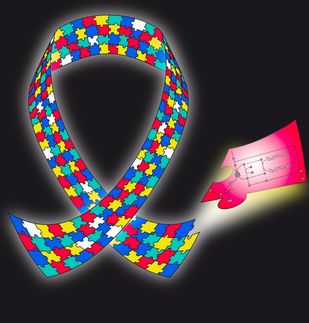Promising discovery for improved diagnosis and understanding of endometriosis
Feinstein Institute for Medical Research scientists announced an experimental, rapid and non-invasive way to diagnose endometriosis, which may lead to earlier and more effective treatments for this disorder that affects approximately 176 million women globally. The scientists found that a particular feature of cells found in menstrual blood suggests that a patient has endometriosis.
The cells can be identified through a simple test using menstrual blood and takes only a few days. This is a dramatic improvement over current diagnostic methods that rely on invasive abdominal surgery, which patients try to avoid, delaying diagnosis typically five to 10 years from the onset of symptoms. March is Endometriosis Awareness Month.
Endometriosis is a chronic condition in which endometrial-like tissue from the uterus or womb grows outside the uterus, typically in the abdominal cavity or on internal organs. Patients often experience significant pain and discomfort. Endometriosis may even lead to infertility or the need for a hysterectomy early in life. One of the most challenging aspects of endometriosis for patients and medical professionals is that it often takes up to 10 years to diagnose because it is confused with other conditions. In order to confirm that it is endometriosis, patients have to undergo surgery. Therefore, improved early and non-invasive diagnostic methods for endometriosis are expected to reduce patient suffering and improve long-term outcomes.
Researchers at the Feinstein Institute established the Research Out-Smarts Endometriosis (ROSE) program to study the genetic basis of endometriosis and what is occurring at the cellular level in this disease. As part of ROSE, research volunteers, both healthy controls and those with endometriosis, provide peripheral and menstrual blood samples which are stored in a biobank so they can be examined in current and future research studies. The recently-published study focused on the role of stromal fibroblasts, a type of stem cell found in menstrual blood, and the immune system. Professors Christine N. Metz, PhD, and Peter K. Gregersen, MD, along with Laura A. Warren, an MD-PhD student at the Donald and Barbara Zucker School of Medicine at Hofstra/Northwell have led this research effort.
"The cause of endometriosis is not known. One theory is retrograde menstruation, which is where menstrual blood containing uterine tissue is transported into the abdominal cavity instead of out of the body. Almost all women experience retrograde menstruation, but we're unsure why in some women this endometrial tissue latches on to the abdominal wall and internal organs and grows causing endometriosis," said Dr. Metz. "In this study, we found that the stem cells in the menstrual blood of women with endometriosis are very different from those of healthy women and we are learning from these differences to develop a novel non-invasive diagnostic."
Metz and her colleagues observed that the menstrual blood of endometriosis patients contained a significantly smaller number of uterine natural killer (uNK) cells compared with healthy participants. In addition to this decrease, they observed that endometriosis patients' stem cells showed impaired decidualization, a process that prepares the uterus from embryo implantation. The scientists are using these observations - that there is a reduction in the number of uNK cells found in menstrual blood and impaired decidualization with menstrual blood-derived stem cells - to develop a non-invasive diagnostic for endometriosis and to learn more about the biology of this devastating disease.
"Instead of having to undergo surgery to accurately diagnose endometriosis, these findings will enable us to develop a rapid test for endometriosis based on menstrual blood, which can be easily collected. This will allow medical professionals to know if someone is at risk for developing endometriosis and start treatment sooner, and it will help them monitor patients' responses to treatment," said Dr. Gregersen. "Endometriosis is a chronic, complex condition and improved understanding of this disease through studying menstrual blood is likely to drive personalization of new therapies. It also highlights the importance of research volunteers - our women volunteers in ROSE are helping to improve the lives of women across the globe."
Drs. Metz and Gregersen plan to continue this research to develop this diagnostic method for clinical use and to improve the basic understanding of the biology and genetics underlying endometriosis in order to discover new and more effective therapies.























































